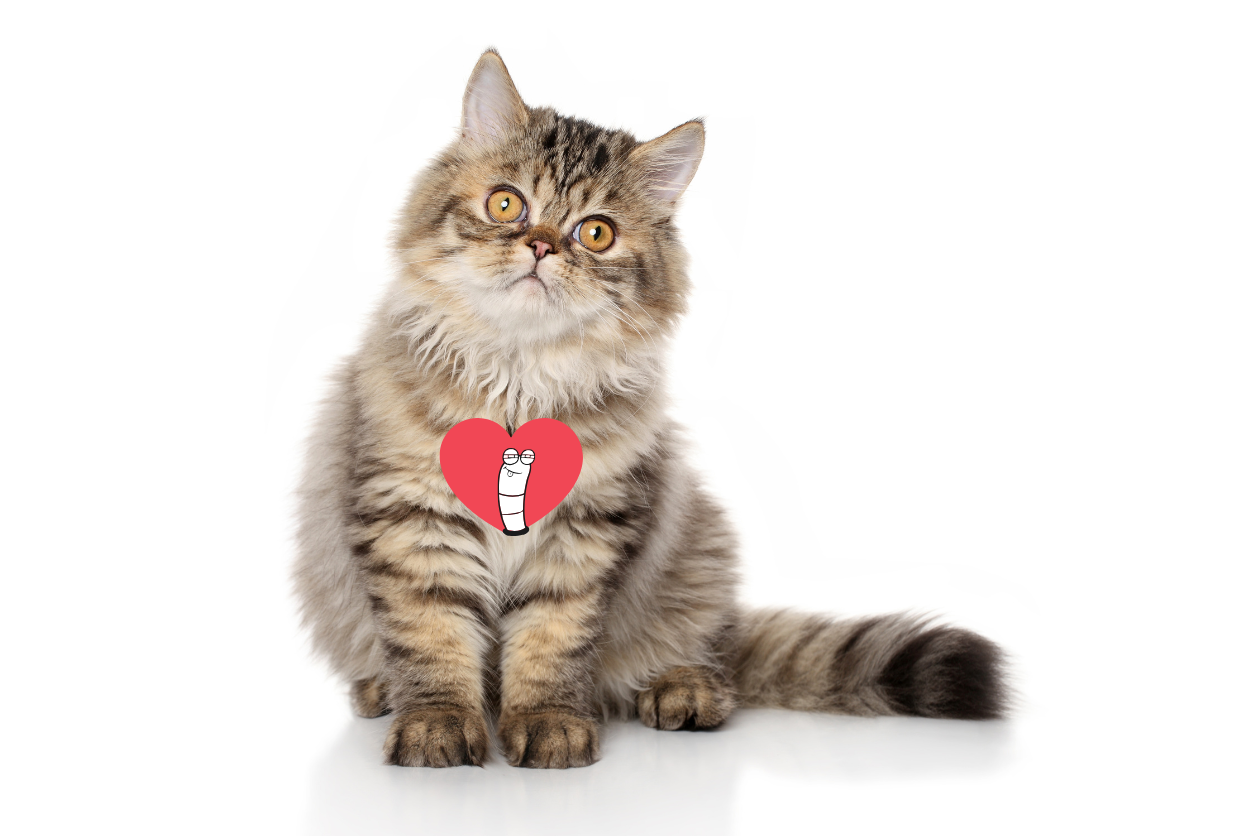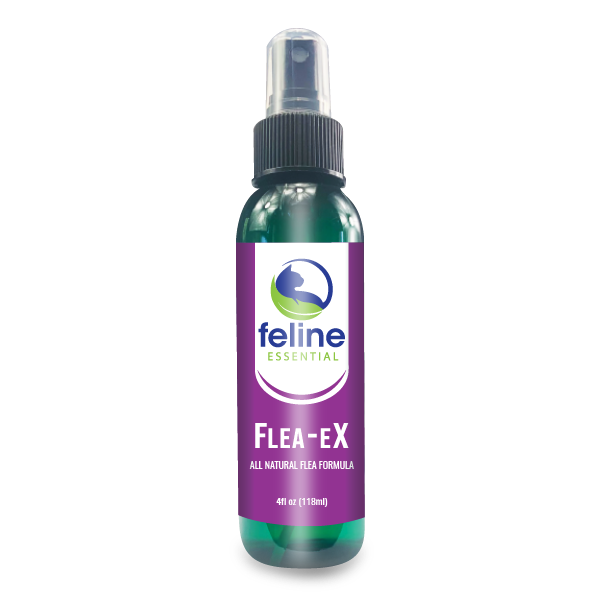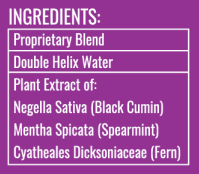Heartworm in Cats
Heartworm disease is widely recognized in dogs – but what about cats?
Maybe you’ve heard that the American Heartworm Society and many veterinarians recommend putting cats on monthly heartworm preventatives. While cats are not immune to heartworm, they are not their natural host – like dogs. So, this rise in the year-round recommendation of pharmaceutical prevention – regardless of a cat’s lifestyle or importantly, their location – has many cat parents asking:
Do cats really need heartworm preventatives?
This guide will walk you through:
- What heartworm is and how it affects cats
- How symptoms differ from dogs
- The risks of chemical preventatives
- Natural ways to protect your cat from heartworm
- What to do if your cat tests positive
Let’s break it down.
Symptoms of Heartworm in Cats
Heartworm disease in cats presents very differently than it does in dogs.
“In cats, the disease is caused by an inflammatory reaction to the presence of the worms.”
– Dr. Karen Becker, DVM
This inflammatory reaction – called HARD (Heartworm-Associated Respiratory Disease) – primarily affects the lungs, not the heart.
Common Symptoms of Heartworm in Cats:
- Coughing or wheezing
- Labored or rapid breathing
- Vomiting (often without food)
- Lethargy or decreased activity
- Anorexia or weight loss
- Collapse, seizures, or sudden death in severe cases
- Neurological signs such as blindness or disorientation
Symptoms can appear in two phases:
- Early Stage: 70-90 days after infection, when immature worms reach the lungs and cause inflammation.
- Late Stage: When adult worms die, triggering a massive immune response that can affect multiple organ systems.
Because these symptoms are so similar to asthma and bronchitis, feline heartworm often goes undiagnosed – or is misdiagnosed entirely.
Causes of Heartworm in Cats
Unlike other types of worms (like roundworms or tapeworms), heartworms are only transmitted through the bite of a mosquito infected with heartworm larvae. Cats cannot get heartworm from other animals – or by licking, sniffing, or even eating something contaminated with heartworms.
How It Happens:
- A mosquito bites an infected animal.
- The mosquito picks up heartworm larvae and transmits the disease during their next bite.
- In cats, most larvae never reach adulthood – but even baby worms can trigger dangerous inflammation.
Cats are not the natural or ‘ideal’ hosts for heartworm. As a result:
- Most infections consist of very few or no adult worms.
- Heartworm offspring (microfilariae) are usually absent in cats.
- Adult worms that do develop do not survive as long as they do in dogs
- Even a single worm can cause serious problems due to the size of a cat’s heart and pulmonary vessels.
Diagnosing Heartworm in Cats
Dr. Becker points out that testing cats for heartworm is far more difficult than testing dogs.
Standard antigen tests look for proteins from adult female worms – but most infected cats don’t have mature worms – or they may only have male worms.
“Less than 40% of cats with adult worms are antigen positive.”
– Dr. Becker
Diagnostic Tools May Include:
- Antigen tests – Often produce false negatives due to low worm counts.
- Antibody tests – Can suggest exposure – but can’t confirm an active infection.
- Chest X-rays – May reveal inflammation in the lungs.
- Echocardiogram – Can detect adult worms in the heart or pulmonary arteries.
Because these test results can be inconclusive, diagnosis often depends on a combination of clinical signs, test results, and imaging.
Treatment Options for Cats with Heartworm
There is no FDA-approved treatment for killing adult heartworms in cats.
The medications used to treat dogs are toxic to felines and can be fatal.
“About a third of cats given dog heartworm treatment drugs experience life-threatening complications. I don’t recommend using them at all.”
– Dr. Becker
What to Expect:
- If your cat is asymptomatic: Your vet may recommend monitoring with periodic X-rays or ultrasounds.
- If your cat shows signs of inflammation: Corticosteroids may be used short-term to reduce symptoms.
- Severe cases: Oxygen therapy, IV fluids, or surgical removal of worms may be considered – but carry risks.
Dr. Becker suggests partnering with an integrative or holistic veterinarian who can offer:
- Ozone therapy
- IV vitamin C
- Natural herbal protocols tailored to support the immune system and reduce inflammation
Heartworm Preventatives: Are They Necessary for Cats?
Pharmaceutical heartworm preventatives are available for cats – but they’re not without risk.
These are chemical insecticides that don’t truly “prevent” heartworm. They work by killing any larvae the cat may have been exposed to in the previous month.
“Heartworm preventives don’t actually prevent anything. They poison heartworm larvae at the microfilaria stage, causing them to die inside the body.”
– Dr. Becker
Most are given monthly and marketed as safe – but many cat parents report side effects, including lethargy, vomiting, and neurological issues.
In addition, there is evidence that resistance to these drugs is growing, meaning they may become less effective over time.
Natural Heartworm Prevention for Cats
For holistic-minded cat parents – especially those with indoor cats – the risks of routine chemical preventatives often outweigh the risk of disease.
Here’s how you can help protect your cat naturally:
Environmental Protection
- Keep your cat indoors during mosquito season
- Repair door and window screens to prevent mosquito entry
- Eliminate standing water around your home (birdbaths, flowerpots, gutters)
- Use natural mosquito repellents, such as Flea-eX or catnip spray or hydrosols
Immune System Support
- Feed a fresh, species-appropriate diet to strengthen natural defenses
- Use herbs like cat’s claw, which are naturally antiparasitic
- Ask your integrative vet about heartworm nosodes for immune training
- If you must use a chemical preventative, follow up with milk thistle or SAMe to detox the liver
“Focus on keeping your cat’s immune function robust. That’s your first and best line of defense.”
– Dr. Becker
Final Thoughts: Do Cats Need Heartworm Preventatives?
The bottom line: Heartworm is a real but rare disease in cats – and one that requires a different approach than it does in dogs.
“I absolutely do not agree that every pet, everywhere, should be given a chemical insecticide once a month, year in and year out.”
– Dr. Karen Becker
Instead of reaching for routine chemical preventatives, consider:
- Your cat’s environment
- Their risk level
- Safer, natural prevention methods
- Regular veterinary exams and holistic support
An informed, individualized approach is not only safer – it’s smarter. And it allows you to protect your cat in a way that supports their biology, overall health, and your peace of mind.





